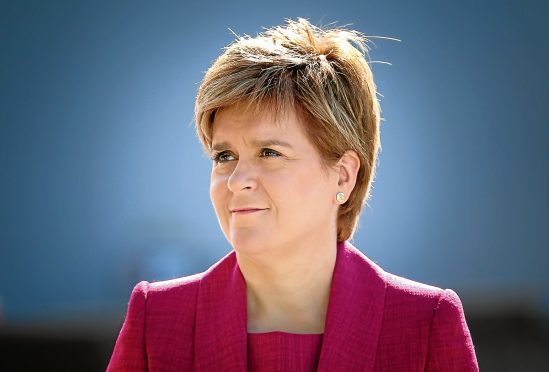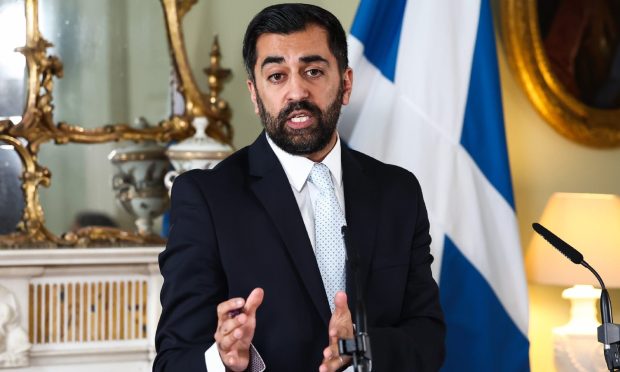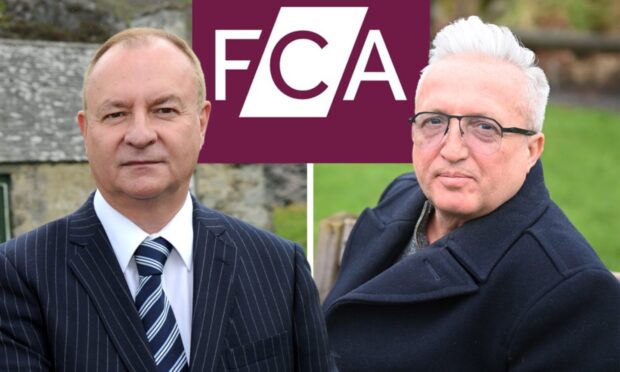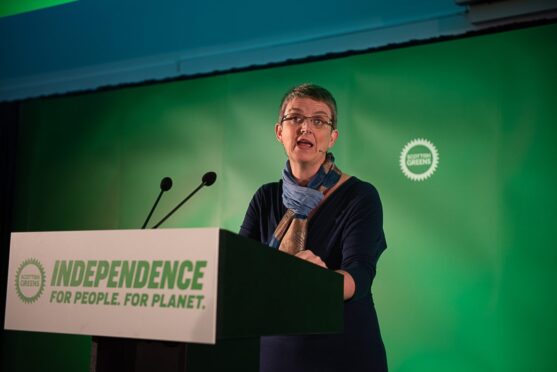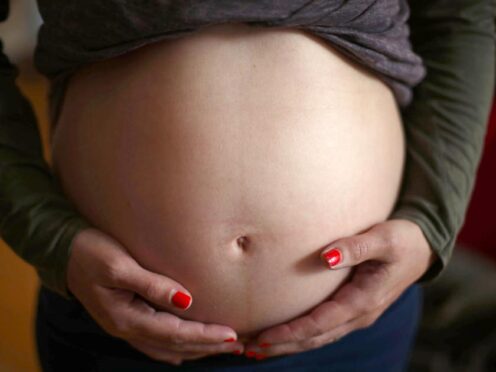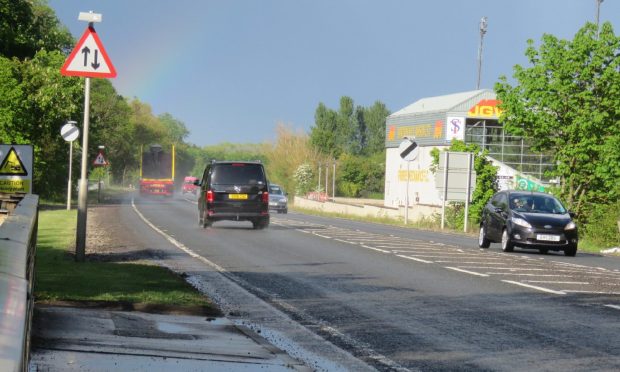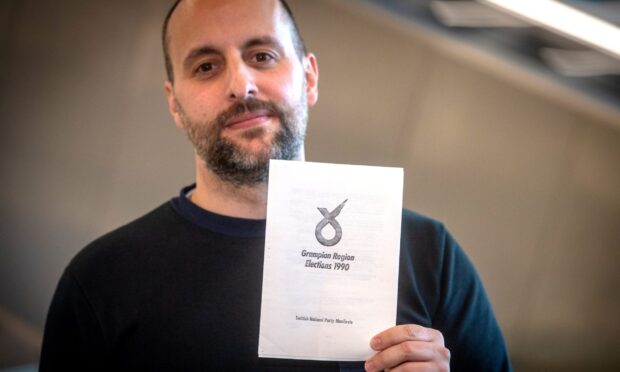Nicola Sturgeon has urged SNP members to go out and sell the party’s plans to ditch the pound to the rest of the country.
The first minister announced the party’s biggest-ever campaign on the economics of independence, despite SNP members failing to give full backing to her currency policy at their party conference.
At the SNP’s spring gathering in Edinburgh, Ms Sturgeon received a standing ovation when she said new independence referendum legislation would be introduced at Holyrood next month and passed by the end of the year.
The SNP leader confirmed she would press ahead with the legislation, even though the UK Government has already confirmed it will refuse to grant her the Section 30 Order needed to transfer referendum powers from Westminster to Holyrood.
In her keynote speech, Ms Sturgeon said “An independent Scotland – a household guide” document making the economic arguments for independence will be sent to all 2.4 million Scottish houses.
“We will now launch the biggest campaign on the economics of independence in our party’s history. So, friends, you know what that means. It’s time to get your jackets on.”
Her plea to activists to go out campaigning came at the end of a conference which was dominated by the currency issue.
Her speech came the day after the SNP leadership suffered a rare defeat at the hands of party activists.
Ms Sturgeon has advocated replacing the pound with a new Scottish currency once six stringent economic tests have been met. The party supported getting rid of the pound and accepted the need for the tests.
But the SNP leader’s proposal for an annual update from a new Scottish central bank on progress towards meeting them was voted down and replaced with a commitment to introducing the new currency “as soon as practicable”.
Her speech did not refer directly to new currency policy or the defeat of her official position, but she said the party’s vote was “a big step – the right step”.
She added: “The conversation we have had within our party, is one we must now have with the country.”
She argued that her economic plan could win a referendum and counter the economic damage caused by Brexit.
Ms Sturgeon said her proposal would be accompanied by a new Social Justice and Fairness Commission, which would set out how cash in an independent Scotland could be shared out more fairly.
Her speech also included a declaration that the world was facing a “climate emergency” and a promise that the Scottish Government would “live up to our responsibility” to halt global warming.
In addition, she announced an extension to the Scottish Government’s Best Start Grant, which currently gives low income families £600 following the birth of a first child and £300 for children after that.
From today, low income parents will be able to apply for £250 when a child starts nursery. The same sum will be on offer from June when a child begins school.
A new £150million scheme to help first-time buyers on to the property ladder was announced, offering a £25,000 loan to fund or top up the deposits of people seeking to buy a house.
Last night, Ms Sturgeon’s opponents attacked her economic plans.
Tory constitution spokesman Adam Tomkins said: “With her chaotic plan to dump the pound and push ahead with an unwanted referendum, Nicola Sturgeon has made it clear she is more interested in her party’s narrow priorities, not those of the majority in Scotland.”
Tom Peterkin’s analysis
Nicola Sturgeon’s defeat on her plans for a new Scottish currency was the defining issue of the SNP’s spring conference in Edinburgh.
The sight of activists defying the SNP leadership was embarrassing for the first minister and will be remembered long after her keynote speech has been forgotten.
Crucially, it was a stark reminder that the currency issue remains the most difficult aspect of SNP attempts to build the economic case for independence.
That the leadership was unable to get the party’s unreserved backing to its key economic policy speaks volumes about the trickiness of the issue.
In Saturday’s currency debate, activists voted narrowly against the leadership, backing an amendment to replace the pound with a separate Scottish currency “as soon as practicable”.
Ms Sturgeon had advocated a more gradual transition. The vote illustrated the SNP grassroots’ frustration with “softly, softly” approach being offered by those at the top.
It was something of a relief to the leadership that winning rebel amendment at least retained the six stringent economic tests that would have to be met before ditching the pound for a new currency.
But Ms Sturgeon will be unable to escape the perception that she has been unable to deal with internal dissent on the SNP’s most important economic policy.
That can only be helpful to her Unionist opponents who will be only too glad to hammer home the argument that the SNP rebels have tied Ms Sturgeon to a policy that advocates a swift ditching of the pound.
It was uncertainty over the pound and the impact that would have on pensions and mortgages that cost the SNP dear in the 2014 referendum. Despite Ms Sturgeon’s efforts that particular problem still looms large for her party.
